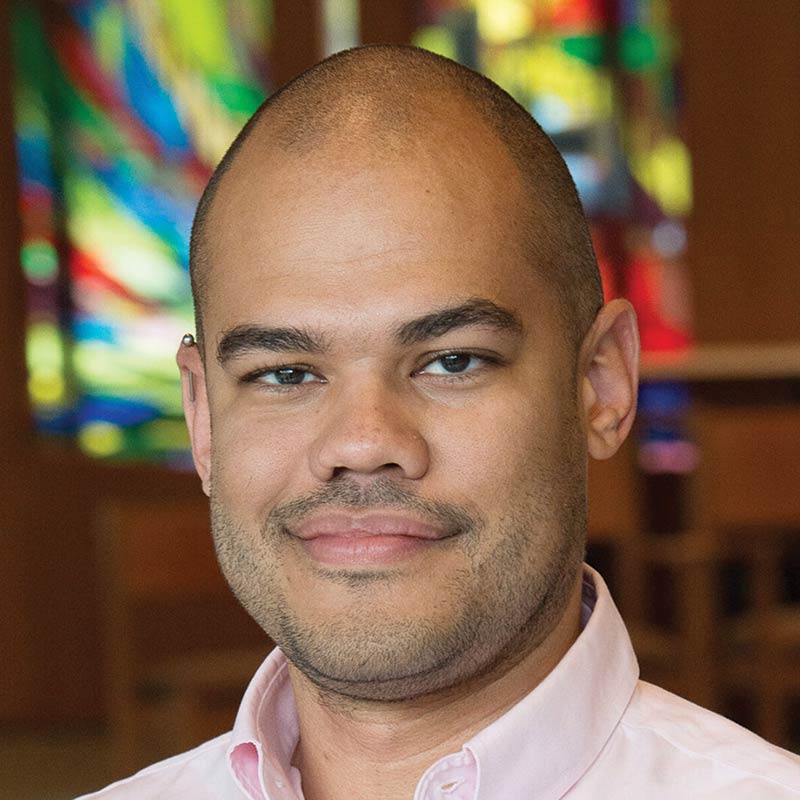Teaching J-Term:
How the Theology of James Cone Helps Students Embrace Justice
By Marvin Wickware

At LSTC, we invite students to embrace their calls—to pastoral ministry, chaplaincy, organizing, teaching, and beyond—as calls to public church leadership. Through our public church curriculum, we strive to help our students develop as leaders who not only proclaim the good news of Jesus Christ but also lead their communities in the lives of loving, justice-seeking discipleship into which Jesus guides us.
Our passionate, faithful students embrace this call to public church leadership…and find themselves caught between two seemingly incompatible demands. On the one hand, personal convictions grounded in their theologies and identities orient them toward a pursuit of radical love and liberative justice. On the other hand, realities in their communities or nations make the full, lived out expression of their convictions dangerous and possibly ineffective.
I teach students who know transgender children are beloved by God and that those who extend gender-affirming care to them are doing God’s holy work, but who live in states that call such sacred work child abuse. I teach students who feel called to lead their churches in the work of justice, but whose come from countries with governments that actively persecute Christians. I teach students who understand antiracist work as a natural extension of Jesus’ command to love our neighbors, but who expect to serve churches whose members eagerly support an openly racist president.
So, this January—considering this seminary’s educational commitments and considering my students’ situations—I taught a course on the theology of a beloved mentor of mine: James Cone.
Cone is known as the father of Black liberation theology, a theological perspective that holds the proclamation of the gospel accountable to the lived realities of Black communities. Cone named God as a God of liberation, powerfully present in the suffering, resistance, love, and beauty of Black life.
It’s likely obvious how studying Cone could equip students to satisfy the first of those two demands. Cone proclaimed an uncompromising message of justice and liberation, locating Jesus among the marginalized and oppressed, then calling the church to show up where Jesus was to be found. Cone offers my students a model for proclaiming a message of radical love and justice with confidence.
Just as importantly, though, studying Cone equipped my students to confront that second challenge alongside the first. Specifically, they studied not only what Cone wrote but also his theological method. That is, they studied how Cone engaged in theological reflection.
At the heart of James Cone’s theological method was a two-part task: to discern the problem at the heart of one’s community and to proclaim a gospel message that speaks to that problem. My practiced this theological method, putting the Bible and other key theological sources in conversation with the questions that arise from their communities. My students discerned what makes people in their communities need to turn to God—or feel like they have to turn away from God—and articulated gospel messages that speak to those problems. Some of these messages were loud and bold, while others were subtle and gentle. Some were critical and convicting, while others mixed all of the above. Through this course on James Cone’s theology, I didn’t teach my students to sound like Cone, unless their context calls them to do so. Rather, I helped them learn to do what Cone did on a deeper level: respond meaningfully to their communities with a theologically rich message their people need to receive.